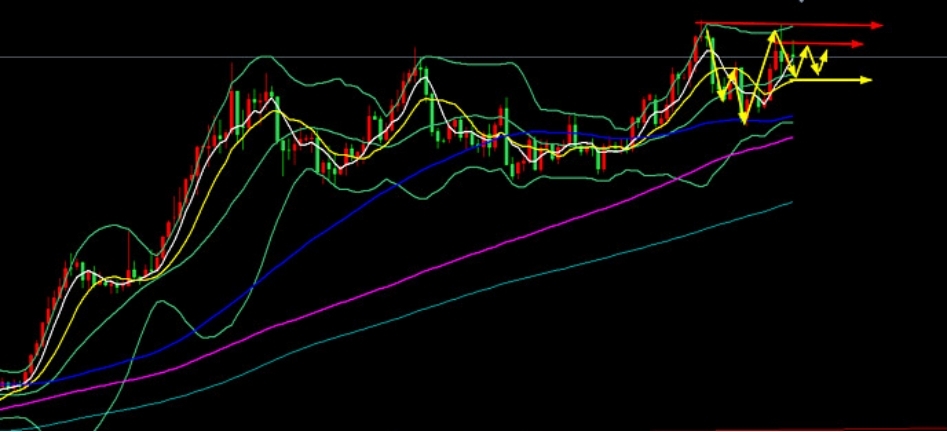
In today's globalized economic landscape, fluctuations in any major economy may trigger a chain reaction, affecting the stability and development of the world economy. Recently, the preliminary value of non-farm employment in the United States in July was only 114,000, far lower than expected and previous levels, the unemployment rate rose to 4.3%, the manufacturing PMI was 46.8, and the non-manufacturing PMI new order data fell below 50 again, triggering the "Sam's Rule". These data do not exist in isolation, but are interrelated, and together reveal that the U.S. economy is at risk of recession, which has aroused widespread concern and concern.
From the employment data, the sharp decline in new non-farm employment reflects the decline in the vitality of the US labor market. Not only does that mean companies are less willing to hire, it could also signal a lack of momentum in the economy. The rise in the unemployment rate is a further sign that more people are losing their jobs and that the economy's ability to absorb jobs is weakening.
The continued low level of the manufacturing PMI, especially the number of 46.8, indicates the weakness of the manufacturing sector. As an important pillar of the real economy, the slowdown in the development of the manufacturing industry poses a major challenge to the stable operation of the entire economy. This may be due to a combination of factors such as shrinking market demand, lagging technological innovation, or uncertainty over trade policy.
The non-manufacturing PMI new orders data fell below the key node of 50, reflecting the lack of expansion momentum in the non-manufacturing sector. The non-manufacturing sector occupies an important position in the modern economy, and its weak growth will have a negative impact on the overall performance of the economy.
This state of the US economy poses a potential threat to global economic stability. In the context of economic globalization, the economies of various countries are interdependent. As one of the largest economies in the world, the recession risk of the United States may be transmitted to other countries through trade, finance and other channels.
On the one hand, a downturn in the U.S. economy could reduce its demand for imports, hitting countries that rely on exports to the United States and affecting economic growth and employment in those countries. On the other hand, the close connection of financial markets may also make the instability of the US economy trigger turbulence in global financial markets, leading to abnormal capital flows, large fluctuations in exchange rates, and asset price adjustments.
From a broader international perspective, the episode also reflects some food for thought. In the formulation and implementation of economic policies, some countries pay too much attention to short-term interests, while ignoring long-term structural adjustment and sustainable development. Over-reliance on consumption-driven economic growth may bring prosperity in a certain period of time, but in the long run, it is easy to lead to the imbalance and vulnerability of the economic structure.
At the same time, the implementation of trade protectionist policies has not only damaged the interests of other countries, but also caused a counter-bite to its own economy. Restricting trade flows undermines the stability of the global industrial chain and supply chain, and weakens the competitiveness and innovation capacity of enterprises.
Faced with such a situation, the international community needs to work together to strengthen cooperation and coordination. Countries should abandon the short-sighted approach of beggar-thy-neighbor policy and jointly promote the establishment of a fair, open and inclusive international trade and financial system. At the same time, countries should also strengthen their economic structural adjustment and optimization to enhance economic resilience and resilience.
The current risk of recession in the US economy is a wake-up call for the global economy. The international community should draw lessons from this experience, work together to meet challenges and maintain global economic stability and sustainable development. Only through cooperation and joint efforts can we achieve win-win results in a complex and changing economic environment and create a more prosperous and better future for mankind.

报告显示,中国电力投资加速增长,预计2024年电网基建投资将超过5300亿元。
近日,市场迎来了一则引人注目的消息:工业巨头3M公司(MMM.N)在本周五公布了其季度业绩报告,随后股价飙升至近两年来的
最近,外媒给OpenAI算了笔账,今年可能要血亏50亿美元。
近日,巴黎奥运会和世界铁人三项协会联合发布了一项重大决定,宣布因塞纳河水质污染问题,原定于近期进行的奥运会铁人三项首次下
当地时间7月18日,法国巴黎发生了一起令人震惊的持刀袭警事件。
近期,一则重大消息在国际舞台上引起轩然大波,马来西亚宣布加入金砖国家。
调查发现,互联网和智能手机的使用干扰了韩国近五分之一学生的生活。